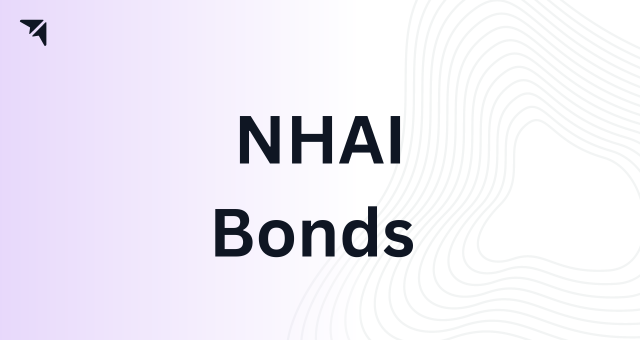
NHAI bonds are one of the capital gain bonds. Investing in these bonds lets you avoid taxation on the capital gain from selling a capital asset such as real estate. By investing in NHAI asset bonds you get tax exemption while contributing to your country’s development.
To learn more about NHAI bonds and how to avail their benefits, go through this detailed blog.
What are National Highway Bonds?
NHAI or National Highway Authority of India looks after various projects across India along with the development of its national highways. The bonds issued by the NHAI are one of the Section 54EC bonds that allow tax exemption over the long-term capital gains an investor would accumulate from this investment.
Why Should You Choose the NHAI While Applied In 54EC Bonds?
There are several reasons why investors readily invest in NHAI bonds. Here are some of the reasons why you can also consider them:
- National highway authority bonds have the highest credit rating, that is, AAA. It means investing in this is highly safe and secure.
- NHAI bond comes with a lock-in period of 5 years.
- The interest rate of NHAI bonds is 5%.
- For the residents of India, the interest is not subject to TDS deductions.
- According to the DTAA form, the TDS deduction will apply to the NRI investors.
Features of NHAI Infrastructure Corporation Bond
Take a look at the features of NHAI infrastructure corporation bonds before investing:
- The interest payout date for NHAI bonds is April 1st of every year and the final interest is payable when the bond attains maturity.
- The minimum amount required for investment in NHAI bonds is ₹10,000.
- The maximum investment can extend up to ₹50,00,000, that is 500 bonds.
How to Apply for the NHAI Bonds?
To apply for the National Highway bonds you have to go through these steps:
- Step 1: Download the NHAI application for non-convertible redeemable taxable bonds and print it.
- Step 2: Fill in with all the necessary details.
- Step 3: Draw a demand draft or a cheque in the name of “National Highway Authority of India” and cross “Account payee only”.
- Step 4: Submit the application form along with the required documents, at any branch of HDFC Bank, Union Bank of India, IndusInd Bank, Axis Bank, ICICI Bank, IDBI Bank, and Canara Bank.
You can check your details on the website of the RTA.
Why did NHAI Bonds Get Discontinued?
NHAI said in a circular that it has decided to discontinue the issue of 54EC Capital gain bond issue 2022-23. From 3rd September 2022, they ensured that no new application was accepted and the credit in the bank account was frozen.
Industry experts speculate that NHAI has stopped accepting NHAI Invit bonds as the central government has directed NHAI to keep borrowings to a minimum for three years. This was done with an aim to prevent debt from reaching unsustainable levels.
Conclusion
The NHAI bonds are fixed-income instruments that offer capital gains tax exemption under section 54EC. You can reduce your tax liability on long-term capital gains from the sale of immovable property. However, NHAI has temporarily discontinued the 2022-23 issue.
FAQs
No, you must not redeem or sell NHAI bonds before the lock-in period of 5 years. Early redemption of such bonds prior to the maturity date will be subject to taxation.
Yes, you can reach out to your financial advisor and they can help you with how to purchase capital gain bonds of NHAI online. You can also invest in NHAI bonds through stockbroking firms and platforms.
Yes, you can borrow loans based on asset security. However, you will not be able to avail tax exemption under Section 54EC. From the year you have borrowed the loan, the income you earn from the long-term capital gain will be taxable.
On maturity, NHAI will automatically redeem the bonds without the surrender of the bond certificate(s) and pay the proceeds by cheque or NECS/ECS.


